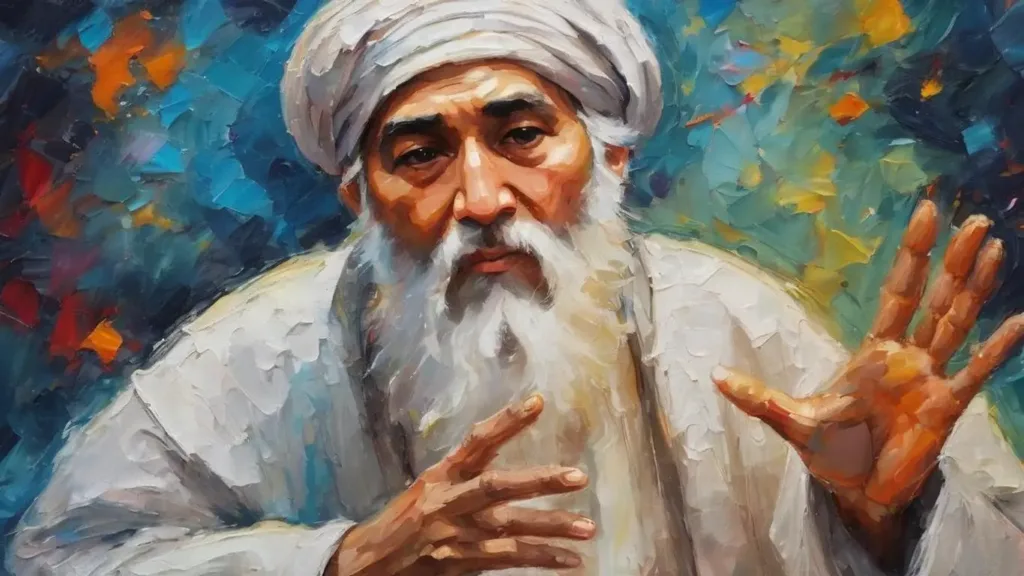
What you seek, is seeking you - Rumi
Table of Contents
Toggle“What you are seeking, seeks you.” is a pretty famous quote. You might have read this quoted somewhere in the name of Rumi. Who’s Rumi? Let’s start with a brief intro: Rumi was a 13th-century Persian poet and mystic. Well, pretty much everybody knows this, but in this article, you’ll come to know something rare. Actually, Rumi was “just a religious scholar.” Initially, he was orthodox. He was into traditional religious practices, but ultimately, he had to go beyond. Let me use a verse.
“falling in love took me away from academia
And reading the Koran so much
Just like that it made me crazy and insane
I used to go to mosque
To throw myself on the prayer rug
And cover myself in devotion
But one day love entered the mosque
And spoke to me: ‘o wise one,
Why do you stay stuck
Inside this house of worship?
What you need to do is break free
From bondage of self”
It’s important, before delving into Rumi’s works, to learn how to interpret and demystify them. Understanding what the poet meant, rather than what we think he meant, is crucial. According to Rumi, your religious practices are also part of the self; they don’t take you beyond the self. Although he doesn’t annihilate traditional religious practices, he suggests that you shouldn’t solely rely on them. Rumi used to remain calm and tranquil, but later, he sought to break free from that demeanor. In fact, he desired to come alive and explode with the divine energy inside him. But what exactly enabled this change in him?
After his father’s death, he took the position of Sheikh in the dervish learning community in Konya. He was just a typical religious scholar. However, a significant transformation occurred in him—from an orthodox religious teacher in Konya to an ecstatic lover of God—due to his encounter with Shams of Tabriz. Shams was simply another traveler throughout the Middle East seeking someone who could “endure my company,” and then he met Jelaluddin Rumi and Magic happened; they made a mysterious bond of friendship to such an extent that it incited jealousy among Rumi’s religious community and other associates felt neglected.
Story of Sham and Rumi
As mentioned earlier, Shams and Rumi shared an ecstatic bond that became problematic within the religious community. Rumi, being a religious teacher, had students who began to feel neglected. Shams was aware of all this. Considering the situation, one day, Shams suddenly disappeared. His abrupt departure, absence, and the longing it evoked transformed Rumi from a mere religious scholar into the legendary figure known as “The Rumi.” It was Shams of Tabriz who catalyzed this transformation.
Later, Rumi discovered that Shams was in Damascus. Immediately, Rumi sent his son, Sultan, to Syria to bring Shams back to Konya. Sultan searched for Shams in Damascus, located him, and brought him back to Konya. When Rumi and Shams reunited, they both prostrated themselves at each other’s feet, and those mystical, lengthy conversations resumed. As a result, people once again began feeling neglected and jealous.
On the dark night of December 5, 1248, while Rumi and Shams were conversing, someone called for Shams outside the back door of Rumi’s house. Shams went out and was never seen again. Some speculate that Shams was murdered by Rumi’s son, Allaedin. (By the way, Rumi himself also passed away in December, 30 years after Shams’ disappearance.) Devastated by Shams’ loss, Rumi took it upon himself to search for Shams everywhere in Damascus.
What you are seeking, is seeking you
During his search for Shams in Damascus, Rumi experienced a moment of euphoria and had an epiphany:
“Why should I seek? I am the same as he.
His essence speaks through me.
I have been looking for myself.”
This marked the first time Rumi realized the concept that “You are what you seek.” But the quote “What you are seeking, is seeking you” has gained such fame that it has even been used in movie posters. Director Imtiaz said, “Although I thought I will not be using any quotation from Rumi anymore, in my movie, but then I can’t help it because it is so appropriate that everything I am trying to say in this movie is really what you seek is seeking you. It is a dialog in the film; you will be surprised when you see it. It is so bang on.”

And here comes the plot twist: Rumi never actually said: “What you are seeking, is seeking you.” This phrase does not appear in any of his works but on Instagram and random not credible places because it’s a mistranslation and misinterpretation but unfortunately famous. As Rumi was a Persian poet, the majority of his work was in Farsi.
The actual phrase goes like this: “Har chiz ke dar jostane āni, āni,” which means “You are what you are seeking, you are what you are looking for,” not the famous notion that “what you seek is also seeking you” instead according to him it is already inside you like you are seeking happiness but it’s inside you, not like happiness also seeking you, as if you look for hate everywhere it is because you yourself full of Hate that’s the actual crux and Rumi said such things in different ways in his poems like in his poem “A basket of Fresh Bread he said:
“Don’t look for it outside yourself.
You are the source of milk. Don’t milk others!”
“The horse is beneath the rider’s thighs, and still
He asks, “Where’s my horse?”
Demystifying the Quote
“Har chiz ke dar jostane āni, āni” translates to “You are what you are looking for.” All our endeavors stem from within us; they are a part of the self, not beyond it. Let’s consider an example: when seeking a partner, we often find ourselves falling in love not with just anyone, but with someone who embodies our essence.
The person we’re drawn to is frequently a projection of our needs, traits, and individuals who reflect qualities resonant with our unconscious desires, values, and beliefs. Carl Jung, a Swiss psychiatrist and psychoanalyst, coined the term “Participation Mystique” to describe this phenomenon. It’s not only about whom we fall for but also that all our pursuits mirror our internal landscape shaped by upbringing and experiences, from the conscious to the unconscious.
Conclusion
Rumi was a great mystic and poet, but his fame and beautiful work often hindered actual learning and real understanding of his teachings. Despite his widespread popularity, not everyone focuses on gaining genuine insights from his teachings. Sincere interpretation is required, as his quotes are often mistranslated, misinterpreted, and at times used out of context. Rumi was a phenomenal being. If you read about him, do so with the utmost sincerity.
